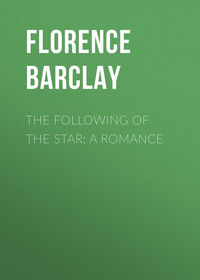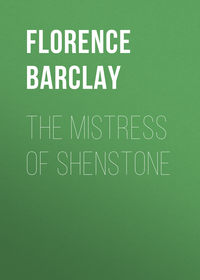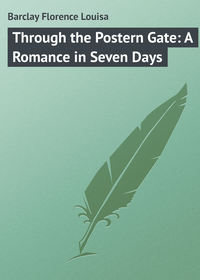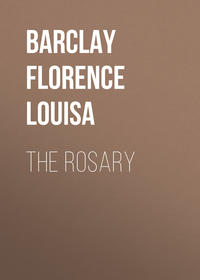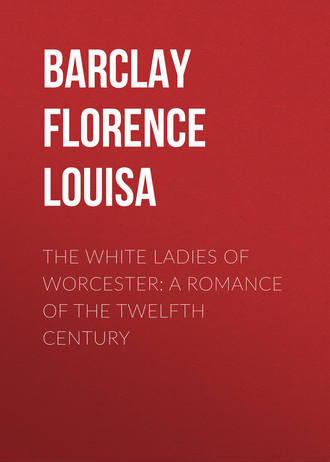 полная версия
полная версияThe White Ladies of Worcester: A Romance of the Twelfth Century
Mary Antony, half turning as she talked, peered into the open bag in search of Sister Teresa.
Then, quick as thought, the unexpected happened.
Three rapid hops, a jerky bend of the red breast, a flash of wings–
The robin had flown off with the white pea! The shrivelled and the speckled alone remained upon the seat.
Uttering a cry of horror and dismay, the old lay-sister fell upon her knees, lifting despairing hands to trees and sky.
Down by the lower wall, in earnest meditation, the Prioress moved back and forth, on the Cypress Walk.
Mary Antony's shriek of dismay, faint but unmistakable, reached her ears. Turning, she passed noiselessly up the green sward, on the further side of the yew hedge; but paused, in surprise, as she drew level with the beech; for the old lay-sister's voice penetrated the hedge, and the first words she overheard seemed to the Prioress wholly incomprehensible.
"Ah, thou Knight of the Bloody Vest!" moaned Mary Antony. "Heaven send thy wicked perfidy may fall on thine own pate! Intruding thyself into our most private places; begging food, which could not be refused; wheedling old Mary Antony into letting thee have a peep at the holy Ladies—thou bold, bad man!—and then carrying off the Reverend Mother, Herself! Ha! Hadst thou but caught away Mother Sub-Prioress, she would have reformed thy home, whipped thy children, and mended thine own vile manners, thou graceless churl! Or hadst thou taken Sister Mary Rebecca, she would have brought the place about thine ears, telling thy wife fine tales of thine unfaithfulness; whispering that Mary Antony is younger and fairer than she. But, nay, forsooth! Neither of these will do! Thou must needs snatch away the Reverend Mother, Herself! Oh, sacrilegious fiend! Stand not there mocking me! Where is the Reverend Mother?"
"Why, here am I, dear Antony," said the Prioress, in soothing tones, coming quickly from behind the hedge.
One glance revealed, to her relief, that the lay-sister was alone. Tears ran down the furrows of her worn old face. She knelt upon the grass; beside her a large nosegay of flowering weeds; upon the seat, peas strewn from out a much-used, linen bag. Above her on a bough, a robin perched, bending to look, with roguish eye, at the scattered peas.
To the Prioress it seemed that indeed the old lay-sister must have taken leave of her senses.
Stooping, she tried to raise her; but Mary Antony, flinging herself forward, clasped and kissed the Reverend Mother's feet, in an abandonment of penitence and grief.
"Nay, rise, dear Antony," said the Prioress, firmly. "Rise! I command it. The day is warm. Thou hast been dreaming. No bold, bad man has forced his way within these walls. No 'Knight of the Bloody Vest' is here. Rise up and look. We are alone."
But Mary Antony, still on her knees, half raised herself, and, pointing to the bough above, quavered, amid her sobs: "The bold, bad man is there!"
Looking up, the Prioress met the bright eye of the robin, peeping down.
Why, surely? Yes! There was the "Bloody Vest."
The Prioress smiled. She began to understand.
The robin burst into a stream of triumphant song. At which, old Mary Antony, still kneeling, shook her uplifted fist.
The Prioress raised and drew her to the seat.
"Now sit thee here beside me," she said, "and make full confession. Ease thine old heart by telling me the entire tale. Then I will pass sentence on the robin if, true to his name, he turns out to be a thief."
So there, in the Convent garden, while the robin sang overhead, the Prioress listened to the quaint recital; the dread of making mistake in the daily counting; the elaborate plan of dropping peas; the manner in which the peas became identified with the personalities of the White Ladies; the games in the cell; the taming of the robin; the habit of sharing with the little bird, interests which might not be shared with others, which had resulted that morning in the display of the peas, and this undreamed of disaster—the abduction of the Reverend Mother.
The Prioress listened with outward gravity, striving to conceal all signs of the inward mirth which seized and shook her. But more than once she had to turn her face from the peering eyes of Mary Antony, striving anxiously to gather whether her chronicle of sins was placing her outside the pale of possible forgiveness.
The Prioress did not hasten the recital. She knew the importance, to the mind with which she dealt, of even the most trivial detail. To be checked or hurried, would leave Mary Antony with the sense of an incomplete confession.
Therefore, with infinite patience the Prioress listened, seated in the sunlit garden, undisturbed, save for the silent passing, once or twice, of a veiled figure through the cloisters, who, seeing the Reverend Mother seated beneath the beech, did reverence and hastened on, looking not again.
When the garrulous old voice at last fell silent, the Prioress, with kind hand, covered the restless fingers—clasping and unclasping in anxious contortions—and firmly held them in folded stillness.
Her first words were of a thing as yet unmentioned.
"Dear Antony," she said, "is that thy posy lying at our feet?"
"Ah, Reverend Mother," sighed the old lay-sister, "in this did I again do wrong meaning to do right. Sister Mary Augustine, coming into the kitchens with leave, from Mother Sub-Prioress, to make the pasties, and desiring to be free to make them heavy—unhampered by my advice which, of a surety, would have helped them to lightness—bade me go out and weed the garden.
"Weeding, I bethought me how much liefer I would be gathering a posy of choicest flowers for our sweet Lady's shrine; and, thus thinking, I began to do, not according to Sister Mary Augustine's hard task, but according to mine own heart's promptings. Yet, when the posy was finished, alack-a-day! it was a posy of weeds!"
Tears filled the eyes of the Prioress; at first she could not trust her voice to make reply.
Then, stooping she picked up the nosegay.
"Our Lady shall have it," she said. "I will place it before her shrine, in mine own cell. She will understand—knowing how often, though the hands perforce do weeding, yet, all the time, the heart is gathering choicest flowers.
"Aye, and sometimes when we bring to God offerings of fairest flowers, He sees but worthless weeds. And, when we mourn, because we have but weeds to offer, He sees them fragrant blossoms. Whatever, to the eye of man, the hand may hold, God sees therein the bouquet of the heart's intention."
The Prioress paused, a look of great gladness on her face; then, as she saw the old lay-sister still eyeing her posy with dissatisfaction: "And, after all, dear Antony," she said, "who shall decide which flowers shall be dubbed 'weeds'? No plant of His creation, however humble, was called a 'weed' by the Creator. When, for man's sin, He cursed the ground, He said: 'Thorns also and thistles shall it cause to bud.' Well? Sharpest thorns are found around the rose; the thistle is the royal bloom of Scotland; and, if our old white ass could speak her mind, doubtless she would call it King of Flowers.
"Nowhere in Holy Books, is any plant named a 'weed.' It is left to man to proclaim that the flowers he wants not, are weeds.
"Look at each one of these. Could you or I, labouring for years, with all our skill, make anything so perfect as the meanest of these weeds?
"Nay; they are weeds, because they grow, there where they should not be. The gorgeous scarlet poppy is a weed amid the corn. If roses overgrew the wheat, we should dub them weeds, and root them out.
"And some of us have had, perforce, so to deal with the roses in our lives; those sweet and fragrant things which overgrew our offering of the wheat of service, our sacrifice of praise and prayer.
"Perhaps, when our weeds are all torn out, and cast in a tangled heap before His Feet, our Lord beholds in them a garland of choice blossoms. The crown of thorns on earth, may prove, in Paradise, a diadem of flowers."
The Prioress laid the posy on the seat beside her.
"Now, Antony, about thy games with peas. There is no wrong in keeping count with peas of those who daily walk to and from Vespers; though, I admit, it seems to me, it were easier to count one, two, three, with folded hands, than to let fall the peas from one hand to the other, beneath thy scapulary. Howbeit, a method which would be but a pitfall to one, may prove a prop to another. So I give thee leave to continue to count with thy peas. Also the games in thy cell are harmless, and lead me to think, as already I have sometimes thought, that games with balls or rings, something in which eye guides the hand, and mind the eye, might be helpful for all, on summer evenings.
"But I cannot have thee take upon thyself to decide the future state of the White Ladies. Who art thou, to send me to Paradise with a fillip of thine old finger-nail, yet to keep our excellent Sub-Prioress in Purgatory? Shame upon thee, Mary Antony!" But the sternness of the Reverend Mother's tone was belied by the merriment in her grey eyes.
"So no more of that, my Antony; though, truth to tell, thy story gives me relief, answering a question I was meaning to put to thee. I heard, not an hour ago, that Sister Antony had boasted that with a turn of her thumb and finger she could, any night, send Mother Sub-Prioress to Purgatory."
"Who said that of me?" stuttered Mary Antony. "Who said it, Reverend Mother?"
"A little bird," murmured the Prioress. "A little bird, dear Antony; but not thy pretty robin. Also, the boast was taken to mean poison in the broth of Mother Sub-Prioress. Hast thou ever put harmful things in the broth of Mother Sub-Prioress?"
Mary Antony slipped to her knees.
"Only beans, Reverend Mother, castor beans; and, when her temper was vilest, purging herbs. Nothing more, I swear it! Old Antony knows naught of poisons; only of mixing balsams—ah, ha!—and soothing ointments! Our blessèd Lady knows the tale is false."
Hastily the Prioress lifted the nosegay and buried her face in bindweed and dandelions.
"I believe thee," she said, in a voice not over steady. "Rise from thy knees. But, remember, I forbid thee to put aught into Mother Sub-Prioress's broth, save things that soothe and comfort. Give me thy word for this, Antony."
The old woman humbly lifted the hem of the Prioress's robe, and pressed it to her lips.
"I promise, Reverend Mother," she said, "and I do repent me of my sin."
"Sit beside me," commanded the Prioress. "I have more to say to thee. . . . Think not hard thoughts of the Sub-Prioress. She is stern, and extreme to mark what is done amiss, but this she conceives to be her duty. She is a most pious Lady. Her zeal is but a sign of her piety."
Mary Antony's keen eyes, meeting those of the Prioress, twinkled.
Once again the Prioress took refuge in the posy. She was beginning to have had enough of the scent of dandelions.
"Mother Sub-Prioress is sick," she said. "The cold struck her last evening, after sunset, in the orchard. I have bidden her to keep her bed awhile. We must tend her kindly, Antony, and help her back to health again.
"Sister Mary Rebecca is also sick, with pains in her bones and slight fever. She too keeps her bed to-day. Strive to feel kindly toward her, Antony. I know she oft thinks evil where none was meant, telling tales of wrong which are mostly of her own imagining. But, in so doing, she harms herself more than she can harm others.
"By stirring up the mud in a dark pool, you dim the reflection of the star which, before, shone bright within it. But you do not dim the star, shining on high.
"So is it with the slanderous thoughts of evil minds. They stir up their own murkiness; but they fail to dim the stars.
"We must bear with Sister Mary Rebecca."
"Go not nigh them, Reverend Mother," begged old Antony. "I will tend them with due care and patience. These pains in bones, and general shiverings, are given quickly from one to another. I pray you, go not near. Remember—you were taken—alas! alas!—and they were left!"
At this the Prioress laughed, gaily.
"But I was not taken decently, with pains in my bones and a-bed, dear Antony. I was carried off by a bold, bad man—thy Knight of the Bloody Vest."
"Oh, pray!" cried the old lay-sister. "I fear me it is an omen. The angel Gabriel, Reverend Mother, sent to bear you from earth to heaven. 'The one shall be taken, and the other left.' Ah, if he had but flown off with Mother Sub-Prioress!"
The Prioress laughed again. "Dear Antony, thy little bird took the first pea he saw. Had there but been a crumb, or a morsel of cheese, he would have left thee thy white pea. . . Hark how he sings his little song of praise! . . . Is it not wonderful to call to mind how, centuries ago, when white-robed Druids cut mistletoe from British oaks, the robin redbreast hopped around, and sang; when, earlier still, men were wild and savage, dwelling in holes and caves and huts of mud, when churches and cloisters were unknown in this land and the one true God undreamed of, robins mated and made their nests, the speckled thrushes sang, 'Do it now—Do it now,' as they sought food for their young, the blackbirds whistled, and the swallows flashed by on joyous wing. Aye, and when Eve and Adam walked in Eden, amid strange beasts and gaily plumaged birds, here—in these Isles—the robin redbreast sang, and all our British birds busily built their nests and reared their young; living their little joyous lives, as He Who made them taught them how to do.
"And, in the centuries to come, when all things may be changed in this our land, when we shall long have gone to dust, when our loved cloisters may have crumbled into ruin; still the hills of Malvern will stand, and the silvery Severn flow along the valley; while here, in this very garden—if it be a garden still—the robin will build his nest, and carol his happy song.
"Mark you this, dear Mary Antony: all things made by man hold within them the elements of change and of decay. But nature is at one with God, and therefore immutable. Earthly kingdoms may rise and wane; mighty cities may spring up, then fall into ruin. Nations may conquer and, in their turn, be conquered. Man may slay man and, in his turn, be slain. But, through it all, the mountains stand, the rivers flow, the forests wave, and the redbreast builds his nest in the hawthorn, and warbles a love-song to his mate."
The Prioress rose and stretched wide her arms to the sunlit garden, to the bough where the robin sang.
"Oh, to be one with God and with Nature!" she cried. "Oh, to know the essential mysteries of Life and Light and Love! This is Life Eternal!"
She had forgotten the old lay-sister; aye, for the moment she had forgotten the Convent and the cloister, the mile-long walk in darkness, the chant of the unseen monks. She trod again the springy heather of her youth; she heard the rush of the mountain stream; the sigh of the great forest; the rustle of the sunlit glades, alive with, life. These all were in the robin's song. Then–
Within the Convent, the Refectory bell clanged loudly.
The Prioress let fall her arms.
She picked up the nosegay of weeds.
"Come, Antony," she said, "let us go and discover whether Sister Mary Augustine hath contrived to make the pasties light and savoury, even without the aid of the advice she might have had from thee."
Old Mary Antony, gleeful and marvelling, followed the stately figure of the Prioress. Never was shriven soul more blissfully at peace. She had kept back nothing; yet the Reverend Mother had imposed no punishment, had merely asked a promise which, in the fulness of her gratitude, Mary Antony had found it easy to give.
Truly the broth of Mother Sub-Prioress should, for the future, contain naught but what was grateful and soothing.
But, as she entered the Refectory behind the Reverend Mother and saw all the waiting nuns arise, old Mary Antony laid her finger to her nose.
"That 'little bird' shall have the castor beans," she said, "That 'little bird' shall have them. Not my pretty robin, but the other!"
And, sad to say, poor Sister Seraphine was sorely griped that night, and suffered many pangs.
CHAPTER VII
THE MADONNA IN THE CLOISTER
The Prioress knelt, in prayer and meditation, before the figure of the Virgin Mother holding upon her knees the holy Babe.
Moonlight flooded the cell with a pure radiance.
Mary Antony's posy of weeds, offered, according to promise, at the Virgin's shrine, took on, in that silver splendour, the semblance of lilies and roses.
The Prioress knelt long, with clasped hands and bowed head, as white and as motionless as the marble before her. But at length she lifted her face, and broke into low pleading.
"Mother of God," she said, "help this poor aching heart; still the wild hunger at my breast. Make me content to be at one with the Divine, and to let Nature go. . . . Thou knowest it is not the man I want. In all the long years since he played traitor to his troth to me, I have not wanted the man. The woman he wed may have him, unbegrudged by me. I do not envy her the encircling of his arms, though time was when I felt them strong and tender. I do not want the man, but—O, sweet Mother of God—I want the man's little child! I envy her the motherhood which, but for her, would have been mine. . . . I want the soft dark head against my breast. . . . I want sweet baby lips drawing fresh life from mine. . . . I want the little feet, resting together in my hand. . . . All Nature sings of life, and the power to bestow life. Yet mine arms are empty, and my strength does but carry mine own self to and fro. . . . Oh, give me grace to turn my thoughts from Life to Sacrifice."
The Prioress rose, crossed the floor, and knelt long in prayer and contemplation before the crucifix.
The moonlight fell upon the dying face of the suffering Saviour, upon the crown of thorns, the helpless arms out-stretched, the bleeding feet.
O, Infinite Redeemer! O, mighty Sacrifice! O, Love of God, made manifest!
The Prioress knelt long in adoring contemplation. At intervals she prostrated herself, pressing her forehead against the base of the cross.
At length she rose and moved toward the inner room, where stood her couch.
But even as she reached the threshold she turned quickly back, and kneeling before the Virgin and Child clasped the little marble foot of the Babe, covered it with kisses, and pressed it to her breast.
Then, lifting despairing eyes to the tender face of the Madonna: "O, Mother of God," she cried, "grant unto me to love the piercèd feet of thy dear Son crucified, more than I love the little, baby feet of the Infant Jesus on thy knees."
A great calm fell upon her after this final prayer. It seemed, of a sudden, more efficacious than all the long hours of vigil. She felt persuaded that it would be granted.
She rose to her feet, almost too much dazed and too weary to cross to the inner cell.
A breath of exquisite fragrance filled the air.
At the feet of the Madonna stood a wondrous bouquet of lilies of the valley and white roses.
Pale but radiant, the Prioress passed into her sleeping-chamber. The loving heart of old Mary Antony had been full of lilies and roses. It was not her fault that her old hands had been filled with weeds. Divine Love, understanding, had wrought this gracious miracle.
As the Prioress stretched herself upon her couch, she murmured softly: "The Lord seeth not as man seeth: for man looketh on the outward appearance, but the Lord looketh on the heart.
"And, after all, this miracle of the Divine perception doth take place daily.
"Alas, when our vaunted roses and lilies appear, in His sight, as mere worthless weeds.
"The Lord looketh on the heart."
* * * * * *When the Prioress awoke, the sunlight filled her chamber.
She hastened to the archway between the cells, and looked.
The dandelions seemed more gaily golden, in the morning light. The bindweed had faded.
The Prioress was disappointed. She had counted upon sending early for old Mary Antony. She had pictured her bewildered joy. Yet now the nosegay was as before.
Morning light is ever a test for transformations. Things are apt to look again as they were.
But a fragrance of roses and lilies still lingered in the chamber.
The blessèd Virgin smiled upon the Babe.
And there was peace in the heart of the Prioress. Her long vigil, her hours of prayer, had won for her the sense of a calm certainty of coming victory.
Strong in that certainty, she bent, and gently kissed the little feet of the holy Babe.
Then, as was her wont, she sounded the bell which called the entire community to arise, and to begin a new day.
CHAPTER VIII
ON THE WINGS OF THE STORM
In the afternoon of that day, Mary Antony awaited, in the cloisters, the return of the White Ladies from Vespers. Twenty only, had gone; and, fearful lest she should make mistake with the unusual number, the old lay-sister spent the time of waiting in counting the twenty peas afresh, passing them back and forth from one hand to the other.
Mother Sub-Prioress was still unable to leave her bed.
Sister Mary Augustine stayed to tend her.
Sister Teresa was in less pain, but fevered still, and strangely weak. The Reverend Mother forbade her to rise.
Shortly before the bell rang calling the nuns to form procession in the cloisters, Sister Seraphine declared herself unable for the walk, and begged to be allowed to remain behind. The Prioress found herself misdoubting this sudden indisposition of Sister Seraphine who, though flushed and excited, shewed none of the usual signs of sickness.
Not wishing, however, to risk having a third patient upon her hands, the Reverend Mother gave leave for her to stay, but also elected to remain behind, herself; letting Sister Mary Rebecca, who had recovered from her indisposition, lead the procession.
Thus the Reverend Mother contrived to keep Sister Seraphine with her during the absence of the other nuns, giving her translations from the Sacramentaries to copy upon strips of vellum, until shortly before the hour when the White Ladies would return from Vespers, when she sent her to her cell for the time of prayer and meditation.
Left alone, the Prioress examined the copies, fairly legible, but sadly unlike her own beautiful work. She sighed and, putting them away, rose and paced the room, questioning how best to deal with the pretty but wayward young nun.
Two definite causes led the Prioress to mistrust Sister Seraphine: one, that she had called upon "Wilfred" to come and save her, and had admitted having expected him to appear and carry her off before she made her final profession; the other, that she had tried to start an evil report concerning the old lay-sister, Mary Antony. The Prioress pondered what means to take in order to bring Sister Seraphine to a better mind.
As the Prioress walked to and fro, unconsciously missing the daily exercise of the passage to the Cathedral, she noted a sudden darkening of her chamber. Going to the window, she saw the sky grown black with thunder clouds. So quickly the storm gathered, that the bright summer world without seemed suddenly hung over with a deep purple pall.
Birds screamed and darted by, on hurried wing; then, reaching home, fell silent. All nature seemed to hold its breath, awaiting the first flash, and the first roll of thunder.
Still standing at her window, the Prioress questioned whether the nuns were returned, and safely in their cells. While underground they would know nothing of it; but they loved not passing along the cloisters in a storm.
The Prioress wondered why she had not heard the bell announcing their return, and calling to the hour of prayer and silence. Also why Mary Antony had not brought in the key and her report.
Thinking to inquire into this, she turned from the window, just as a darting snake of fire cleft the sky. A crash of thunder followed; and, at that moment, the door of the chamber bursting open, old Mary Antony, breathless, stumbled in, forgetting to knock, omitting to kneel, not waiting leave to speak, both hands outstretched, one tightly clenched, the other holding the great key: "Oh, Reverend Mother!" she gasped. Then the stern displeasure on that loved face silenced her. She dropped upon her knees, ashen and trembling.


